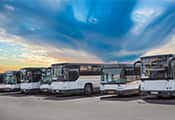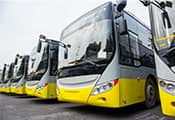Frequently Asked Questions About E-rickshaw in India
In the crowded streets of Indian cities, you can easily find e-rickshaws on the roads. Despite commuting millions of passengers daily, they are known for their noiseless operation and zero emissions. With the rising fuel prices, they are becoming more lucrative for drivers as well. Central and State governments are also working effortlessly to support the growth of e-vehicles in India. Read on to find the top frequently asked questions about e-rickshaw in India.
Trends in Indian Electric Rickshaw Market
With the rising demand for e-rickshaws, you can see rapid growth in this industry. The major contribution to the success goes to the unorganized and local players operating in this market. These key players import significant e-rickshaw components like BMS (battery management systems), motors, axles, etc., and assemble them locally.
These electric vehicles are known especially for their last-mile connectivity. Moreover, established foreign original equipment manufacturers (OEMs) have worked as a push factor in the growth of this industry, as they have shown interest in the market. Even it is anticipated that more such players are likely to enter the electric rickshaw market, owing to invest in product & development and distribution of network expansion of the electric vehicle market.
Furthermore, a major growth factor in the Indian e-rickshaw market is low-cost transportation as they are an affordable and speedy solution for daily commuters. Thus, e-rickshaws can be viewed as an affordable mode of public transport in India.
The Ministry of Road Transport and Highways (MoRTH), National Mission on Transformative Mobility and Battery Storage & NITI Aayog, has proposed an action plan to ban all internal combustion engine-powered electric for three-wheeler vehicles by 2023. Thus, it is expected to boost the sales of e-rickshaws and commercial vehicle insurance in the upcoming years.
If you own an e-rickshaw or operate a business with e-rickshaws, the law mandates that you must have at least third-party liability cover. An e-rickshaw insurance policy is essential to protect your business from several risks and assures you financial protection against any unforeseen damages or losses.
6 Frequently Asked Questions About Electric Rickshaws in India
Q1. How does e-rickshaw work?
Ans: E-rickshaws are built over tabular chassis so that the body is kept light in weight to increase life and enhance the battery's performance. The primary components present in the powertrain are the controller, motor, harness, throttle, and batteries. All these ensure the drive quality and safety of the vehicle. Every component of an electric rickshaw is engineered with the motive to improve the battery life and contribute towards a higher profit over time.
Q2. Which kind of battery is used in the e-rickshaw?
Ans: Most of the e-rickshaws are run by lead-acid batteries. These are high-maintenance with a longer charge time of 8-10 hours and heavier in weight. With time, lithium-ion batteries are replacing lead-acid batteries as they are lower in weight, and their charge time is between 1.5 hours - 3 hours. Thus, these are more consistent, reliable, long-lasting, effective for comfortable rides, and low maintenance.
Q3. Which is the best e-rickshaw model in India?
Ans: Below is the list of best e-rickshaws in the Indian market-
- Mahindra Treo with 130-170 km mileage
- Lohia Narain DX with 140 km mileage
- Lohia Comfort F2F with 140 km mileage
- Kinetic Safar Smart with 130 km mileage
- Lohia Narrain ICE with 110 km mileage
Q4. What is the average mileage of an e-rickshaw?
Ans: As an affordable mode of intermediate public transportation for short and medium distances, the average mileage of e-rickshaw ranges between 60-90 km/full charge.
Q5. How many e-rickshaws are present in India?
Ans: Currently, e-rickshaws hold 83 percent of the total e-vehicle market in India. Moreover, around 15 lakh e-rickshaws are sold with an additional sale of 11,000 newly launched every month.
Q6. Is it compulsory to buy e-rickshaw insurance policy?
Ans: According to the Motor Vehicle Act. 1988, it is mandated to obtain at least third-party e-rickshaw insurance. An e-rickshaw is a commercial vehicle that must be protected against unforeseen losses arising out of theft, fire, accident, natural disaster, or any other unfortunate incidents. Therefore, you must have the right commercial vehicle insurance to protect it from several damages.
As an e-rickshaw owner, it is highly recommended to insure your vehicle with a passenger carrying insurance policy. It covers third-party liabilities and own damages both.
Final Words
E-rickshaw is an electric-powered machinery primarily used to transport passengers. In India, they are commonly known as tuk-tuks and have witnessed a significant demand in the last few years. If you have any confusion about the e-rickshaw, refer to the above article.



















































